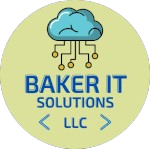Throughout history, there have been myths related to unexplainable topics. Even with topics that are explainable, people have opinions and perspectives that are perpetuated even when unsupported by facts. This holds with computer usage and cyber-security as well. There are many, but we are only going to cover a few that we consider vitally important.
1. I don’t need security measures
Many unfortunately think they do not need to take security measures on their personal computers or small businesses. Some think that because they are cautious about the links they click on, how they guard their private information, and don’t go to “suspicious” websites they are perfectly safe. These are good measures to start with however, having technical security measures such as anti-virus in place will reduce your risks. Regrettably, many of these people find their safety measures alone are not sufficient.
2. Anti-Viruses Guarantee 100% Protection
Yes, we just recommended that you use anti-virus protection to help increase your security. However, have no delusions that adding anti-virus software will be all that you need to completely protect your computer and your data as cyber-security threats are ever-increasing and continuously becoming more complex. There are additional technical measures that you should take in addition to “common sense” practices as mentioned above.

Adding a second anti-virus software is not a recommended course of action to attempt to overcome the shortcomings of an anti-virus program either. Sometimes these programs can interfere with one another and make them less effective.
It is also very important to ensure that your anti-virus software is up to date and runs scans on your computer regularly.
3. Only Windows devices are Susceptible to Viruses
Many have heard time and time again that only Windows computers and devices will get viruses. While the bulk of the major viruses that have been reported in the news have attacked Windows-based machines, this does not mean that they are the only devices that can and are affected by viruses. It is more common to hear about viruses attacking Windows-based devices, that is mostly because Widows hold the vast market share of computers. Hackers do still build and deploy viruses to attack Mac and Linux-based computers as well.
4. Updates don’t matter
Most of us have experienced that untimely Windows update message that says our computer is about to be restarted because of an update and thought that the frequent updates required are nonsense and a time waster. Although the timing of these can be inconvenient at times, they are beneficial. Due to the constant attempts of attackers, software and operating system manufacturers are forced to update their software and patch flaws that are detected.
5. Passwords are Unimportant
Regrettably, all too many have found out after the fact that their password just wasn’t sufficient to protect their computer or data from hackers. Nearly everyone has experienced a website or a program forcing them to come up with some sort of a complex password and gotten very frustrated with the process of coming up with a password to meet the complexity requirements. Additionally, most have heard not to use common words like “password” or special dates like birthdays for passwords, but it is a good practice to make your passwords longer and with combinations of upper and lower case letters, numbers, and special characters.
The complexity and length of a password will greatly increase your chances of protecting your data and access to your programs. The longer and more complex the password increases the time it will take to crack a password.
All in all, there is no one trick to protect yourself, your computer, and your data from risk. It’s important to consider many aspects of security and employ a multi-layer approach to security. It is beneficial to take into consideration many of the different measures that can increase your security, and at least take into account portions of those different aspects. Security can be a daunting undertaking and is a balancing act between increasing security and keeping your data and systems accessible.


